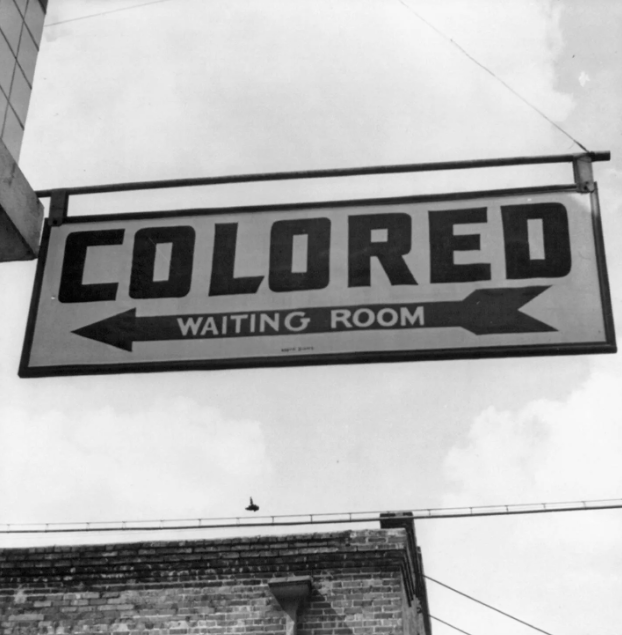Oppression
Let’s again continue with the premise that we are the product of our circumstances, that is, the notion that before reaching a certain age at which we possess the degree of self-awareness and emotional maturity to break free of those circumstances, we have no free will in determining who we become. Think about the specific events surrounding our upbringing—our parents, our teachers, our friends, the culture that they instill within us, the values that they impart to us. Think about what seems “right” to you.
They teach us that wealth, status, and hard-earned privilege are at the center of a prosperous life. They teach us that the leaders of our government and the design of capitalism create space for our prosperity. They teach us that there is a set path towards that prosperity—go to school, go to a prestigious college, get a respectable job, have a family, then retire And of course, which schools and colleges are to be considered “prestigious” and which jobs are to be deemed “respectable” will be predetermined by the culture we live in.
They teach us that hard work, perseverance, and diligence is the key to success, which means that, in school, the most optimal course of action is to spend the majority of your waking hours of your youth memorizing the textbook, jotting down only the things that will be on the test, and toiling away at countless standardized exams that are designed to determine your future through a letter or a number grade. It means that, on the job, you follow directions, do your job only as instructed, and understand that if you cease to work as designed, it’s not an issue because you’re an interchangeable part, a replaceable and disposable cog within an industrial system.
And to psychologically bind us to these norms, they teach us that obedience and conformity is good. They teach us that we should feel inadequate if we don’t have the same wealth, status, and privilege that others have, and that we should strive to have those things at any cost. They teach us that challenging the status quo and deviating from the worn path of life is reckless and dangerous. They teach us that asking too many questions is a form of insubordination. They teach us that quitting is for losers and the undetermined.
We would never outright urge people to not think for themselves. We would never explicitly tell them that they can’t choose to walk their own path. We perceive that such directives are cruel, unjust, and characteristic of the oppression of the communist and fascist totalitarian regimes of the past century.
But if we understand the implications of these social norms that prod the vast majority of the population to invariably walk a predetermined path, without question of its design or purpose, what is this but oppression of a different design? What is this but psychological oppression?
What gives us the right, from the onset of personality formation, to indoctrinate our future generations with these values and ideals, when specifically those values and ideals work to hinder their individual freedom? When they blind them from achieving their greatest potential as a human being because they believe that their mere purpose in life is to serve capitalism and serve the societal status quo, to avoid the shame and ridicule that is the consequence of deviating from the norm? When these values cause them to settle for less and believe that just because no one specifically chose them to make any significant change in the world, they should sit back and live a selfish life? When the system seeks to create grave inequality and artificial scarcity for all the “good” jobs and all the “good” schools, allocating undeserved privileges for those that have unwavering dedication to this predetermined path, while the rest are punished?
Indeed, no matter what we choose to teach our children and no matter how we design our society, human beings are wired to emulate. But we have the capacity, each as leaders of our current generation, to change what they emulate.
Racial oppression—the segregation and discrimination of African-Americans, Asians, and Hispanics—was a problem in our country for centuries before the civil rights movement. More specifically, the cultural norms that defined the attitudes towards race were the problem that enabled those abhorrent institutions. Today, while racism is still an issue, on average the tolerance and appreciation of racial and ethnic diversity is far greater than it has ever been. But this wasn’t because we necessarily did a better job at parenting now versus the parenting of the past. It wasn’t because we offered a racial diversity class to every US citizen born after 1970. It wasn’t because we were able to dissolve the racism from those who were already racists to begin with.
It’s because of the courageous acts of a minority of the population that caused the entire culture to shift, and thus, over time, what future generations observed about the world ultimately changed. It’s because those future generations observed that sharing bathrooms, classrooms, and restaurants with non-white people was normal. It was normal to see them in positions of authority as individuals equally as capable of making a positive difference in our world. It was normal to see them as our friends, classmates, and coworkers with whom we could share the joys of life with.
If we can swallow our pride and muster the courage, we can—united as human beings and undivided by our tribal tendencies—collectively determine which parts of our culture are holding us back and which parts are spurring us forward. We can decide to break free of our oppressors and spurn the profligate way of life of industrialism, the narrow-mindedness and irrationality characteristic of most of our arguments, and the complacency that looms over a banalized and trivialized existence brought upon us by a negligence and refusal to ask, let alone answer, what truly matters for humanity.
This is how we change the world.
